Daniel Huttenlocher
Matching of Users and Creators in Two-Sided Markets with Departures
Jan 17, 2024Abstract:Many online platforms of today, including social media sites, are two-sided markets bridging content creators and users. Most of the existing literature on platform recommendation algorithms largely focuses on user preferences and decisions, and does not simultaneously address creator incentives. We propose a model of content recommendation that explicitly focuses on the dynamics of user-content matching, with the novel property that both users and creators may leave the platform permanently if they do not experience sufficient engagement. In our model, each player decides to participate at each time step based on utilities derived from the current match: users based on alignment of the recommended content with their preferences, and creators based on their audience size. We show that a user-centric greedy algorithm that does not consider creator departures can result in arbitrarily poor total engagement, relative to an algorithm that maximizes total engagement while accounting for two-sided departures. Moreover, in stark contrast to the case where only users or only creators leave the platform, we prove that with two-sided departures, approximating maximum total engagement within any constant factor is NP-hard. We present two practical algorithms, one with performance guarantees under mild assumptions on user preferences, and another that tends to outperform algorithms that ignore two-sided departures in practice.
Engaging with Massive Online Courses
Mar 14, 2014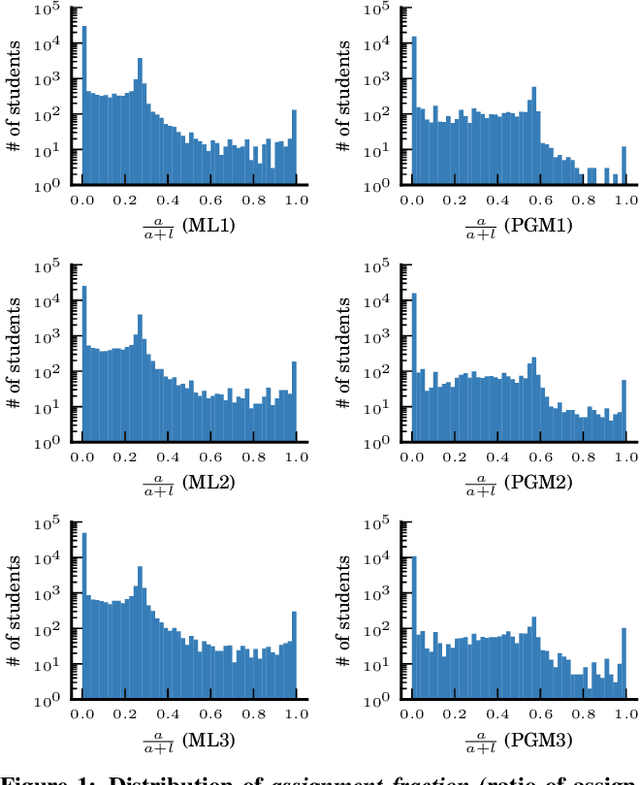


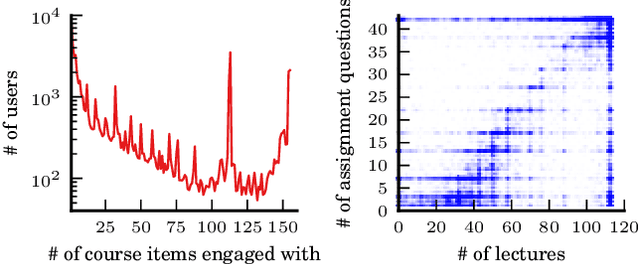
Abstract:The Web has enabled one of the most visible recent developments in education---the deployment of massive open online courses. With their global reach and often staggering enrollments, MOOCs have the potential to become a major new mechanism for learning. Despite this early promise, however, MOOCs are still relatively unexplored and poorly understood. In a MOOC, each student's complete interaction with the course materials takes place on the Web, thus providing a record of learner activity of unprecedented scale and resolution. In this work, we use such trace data to develop a conceptual framework for understanding how users currently engage with MOOCs. We develop a taxonomy of individual behavior, examine the different behavioral patterns of high- and low-achieving students, and investigate how forum participation relates to other parts of the course. We also report on a large-scale deployment of badges as incentives for engagement in a MOOC, including randomized experiments in which the presentation of badges was varied across sub-populations. We find that making badges more salient produced increases in forum engagement.
Predicting Positive and Negative Links in Online Social Networks
Mar 11, 2010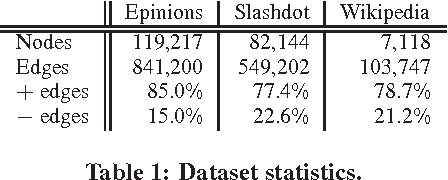
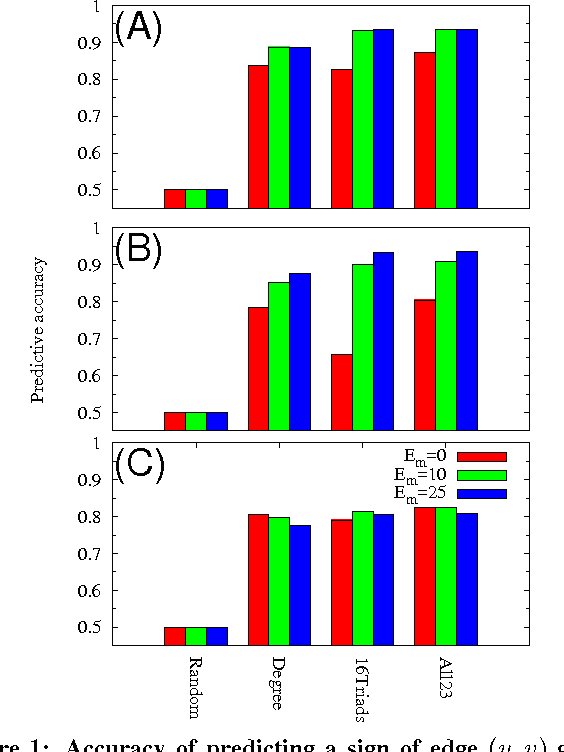
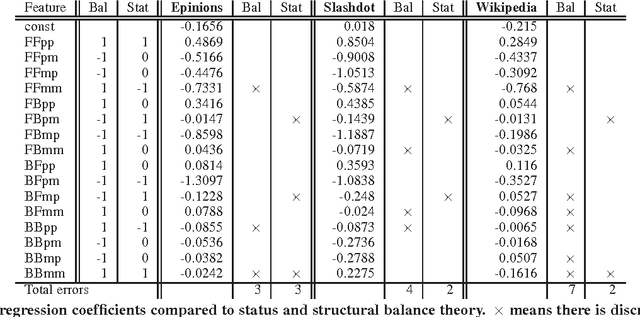
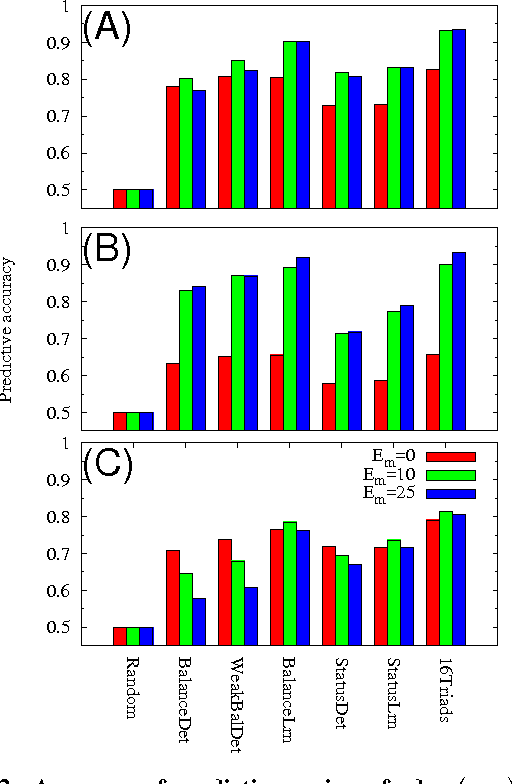
Abstract:We study online social networks in which relationships can be either positive (indicating relations such as friendship) or negative (indicating relations such as opposition or antagonism). Such a mix of positive and negative links arise in a variety of online settings; we study datasets from Epinions, Slashdot and Wikipedia. We find that the signs of links in the underlying social networks can be predicted with high accuracy, using models that generalize across this diverse range of sites. These models provide insight into some of the fundamental principles that drive the formation of signed links in networks, shedding light on theories of balance and status from social psychology; they also suggest social computing applications by which the attitude of one user toward another can be estimated from evidence provided by their relationships with other members of the surrounding social network.
 Add to Chrome
Add to Chrome Add to Firefox
Add to Firefox Add to Edge
Add to Edge